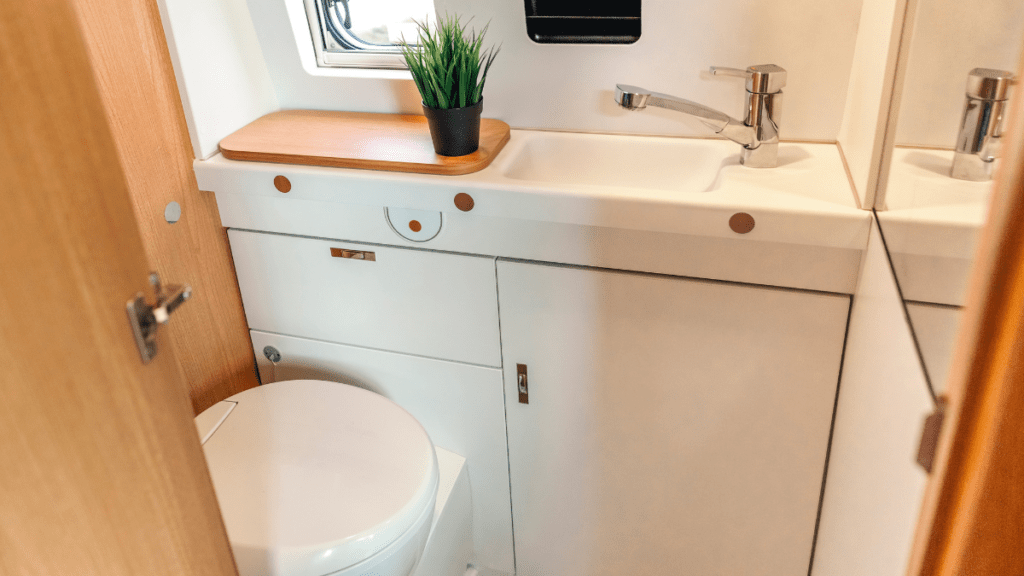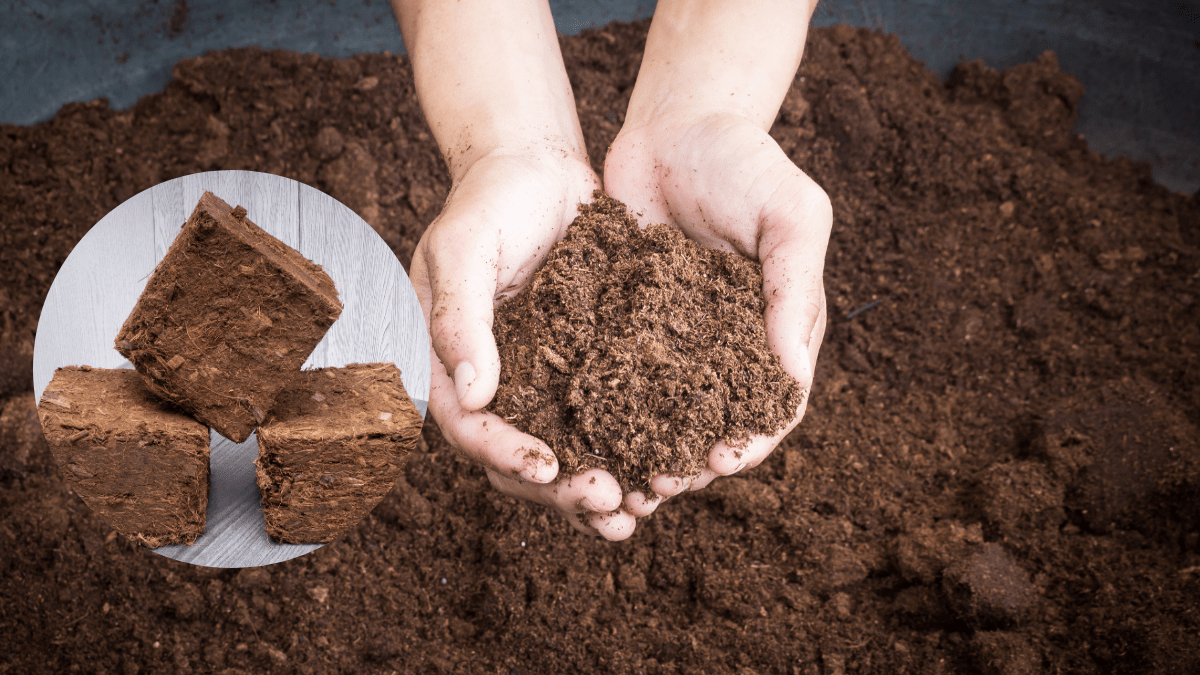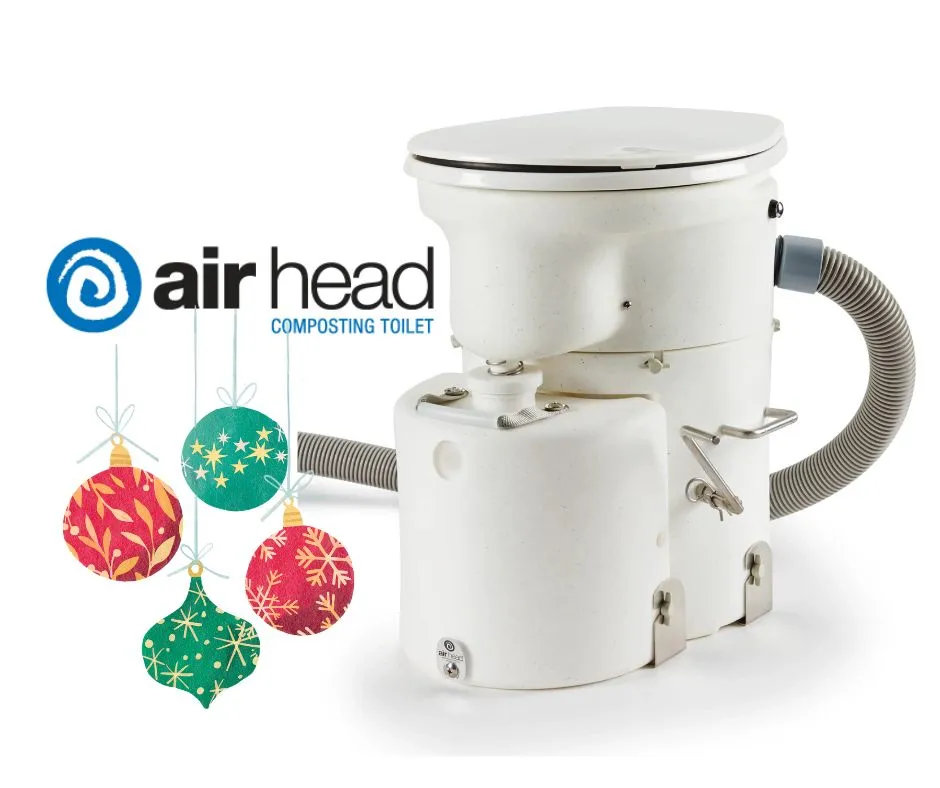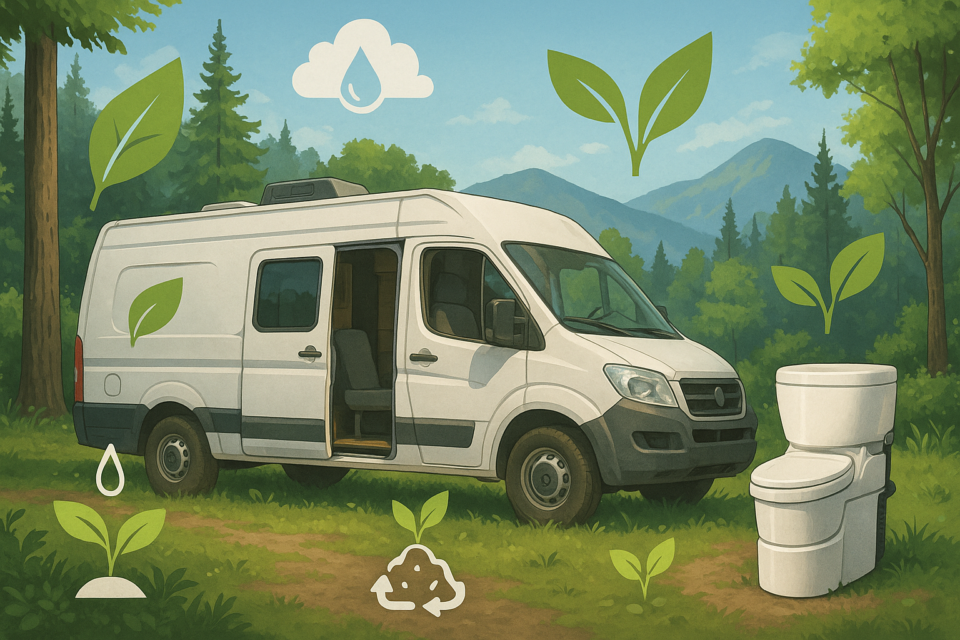

When you’re on the road, out on the water, or just off-grid, having a reliable toilet system is crucial. The of two most common options for those seeking portable, eco-friendly toilet solutions are composting toilets and cassette toilets. Each type has its advantages and disadvantages, so how do you decide which is right for your situation?
In this article, we’ll compare composting toilets and cassette toilets, focusing on their features, pros and cons, and which one might be the better fit for your needs. Yes, we do have a favourite!
A composting toilet is an eco-friendly system that uses a natural decomposition process to break down human waste. Instead of flushing waste away with water, composting toilets rely on aerobic bacteria to turn waste into compost. By separating liquids from solids, the composting process can take place efficiently, minimizing odors and reducing the volume of waste over time.

Air Head Composting Toilets, for example, stand out in the market due to their design and comfort, along with their specially designed rubber gaskets on the lid, seat, and bowl, which ensure a tight seal to prevent leaks and odors. The solid and liquid separation system further reduces odors while making the unit easy to maintain.
A cassette toilet is a more traditional portable toilet system, typically found in RVs. Unlike a composting toilet, a cassette toilet uses water to flush waste into a small, removable waste tank (the cassette). These tanks are designed to be emptied manually at designated dump stations or other approved areas.
Cassette toilets are often installed in compact spaces and are known for their portability and ease of use. They operate much like a household toilet but on a smaller scale.

| Feature | Composting Toilet | Cassette Toilet |
|---|---|---|
| Waste Processing | Uses natural composting process | Uses water and chemicals for waste management |
| Eco-Friendliness | Highly eco-friendly, uses no water or chemicals | Not eco-friendly, uses water and chemicals |
| Odor Control | Excellent with liquid/solid separation, ventilation and gaskets | Poor, and chemicals are required for control |
| Maintenance | Empty solid tank once a month for 2 people. | Frequent tank emptying, usually every few days |
| Size | Larger, requires space for composting material | Smaller, fits in more compact spaces |
| Power Requirements | Small fan for ventilation (minimal power) | No power required |
| Initial Cost | Higher upfront cost | Generally more affordable upfront |
| Ongoing Costs | Low (no chemicals, minimal water use) | Higher due to chemical purchases |
| Installation | Versatile, can be installed in wet areas | Easy, depending on model |
If you prioritize self-sufficiency, conserving water, and are looking for a sustainable solution, the composting toilet is the clear winner. Its ability to process waste naturally without the use of chemicals, combined with its minimal water usage, makes it ideal for those wanting to reduce their environmental impact.
The Air Head Composting Toilet offers additional perks like it’s home-from-home comfort and design, it’s water-resistant design for installation in wet areas and rubber gaskets for airtight sealing, preventing odors and leaks—a perfect fit for boats, RVs, or tiny homes.

On the other hand, if you’re after a cheaper alternative, a cassette toilet may be the better option for you. Its smaller size and ease of use make it convenient, but keep in mind the smells, more frequent need to empty the waste tank and the ongoing cost of chemicals.
Both composting and cassette toilets have their strengths, but the right choice depends on your specific needs. In our opinion, if comfort, eco-friendliness, minimal water usage, being off-grid for long periods of time, or lower ongoing costs and maintenance matter to you, then the Air Head Composting Toilet is a great investment.
Whichever you choose, both offer practical solutions for life on the road, the water, or off-grid living. Make sure to determine your priorities and choose the one that fits your lifestyle best!
If you need help choosing an Air Head Composting Toilet, [click here to compare our toilets].







